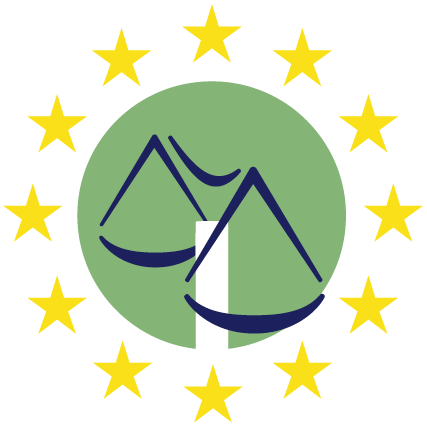The European Union Forum of Judges for the Environment was created in Paris on February 28, 2004, on the initiative of Mr Guy Canivet, First President of the Cour de Cassation (France), Amedeo Postiglione, Judge of the Corte Suprema di Cassazione (Italy), Luc Lavrysen, Judge of the Constitutional Court (Belgium) and Lord Justice Robert Carnwath, Judge of the Court of Appeal (England and Wales).
The Board is now composed as follows: Luc Lavrysen (Belgium), President; Lord Justice Keith Lindblom (United Kingdom), Vice-President; Luca Ramacci (Italy), Vice-President; Fruzsina Bögös (Hungary), Secretary-General, Claes-Göran Sundberg (Sweden), Treasurer; Françoise Nési (France), Auditor and Jerzy Stelmasiak (Poland), Vice-President.
This association, established under the law of Belgium, is open to all EU and European Free Trade Association judges and to judges of former EU Member States. The objective of the Forum is to promote the enforcement of national, European and international environmental law by contributing to a better knowledge by judges of environmental law, by exchanging judicial decisions and by sharing experience in the area of training in environmental law.
The Forum was created with a view to raising the awareness of judges of the key role of the judicial function in the effectiveness of sustainable development. The June 21, 1993 Lugano Convention on civil liability for damage resulting from activities dangerous to the environment, the November 4, 1998 Strasbourg Convention on the protection of the environment through criminal law and the June 23 and 25, 1998 Aarhus Convention on access to information, public participation in decision making and access to justice in environmental matters underline this requirement and give the judiciary a central role in the enforcement of environmental law.
The Forum has its origins in the United Nations Programme for the Environment (UNEP), which initiated a meeting of all the Presidents of Supreme Courts and Chief Justices of the world during the August 2002 Johannesburg summit. To implement the resolutions adopted at the end of the symposium, regional colloquiums were set up. European judges met in Rome on May 9 and 10, 2003 and decided to establish a standing organisation for EU countries. It was agreed at the inaugural meeting in the European Court of Justice in Luxembourg on 26 April 2004 that the early work of EUFJE was to obtain information about environmental law training facilities offered to members of the judiciary in each of the participating states, as well as particular courts or tribunals which have jurisdiction in respect of environmental cases.
On 3 December 2004, EUFJE held its first Annual Conference in the Council of State of the Netherlands, in The Hague. In the following years annual conferences were held in London in 2005 (on waste legislation), in Helsinki in 2006 (on Natura 2000), in Luxembourg in 2007 (on criminal enforcement of environmental law), in Paris in 2008 (on soil pollution), in Stockholm in 2009 (on the Integrated Pollution Prevention and Control Directive), in Brussels in 2010 (on the Application of European Biodiversity Law at national level), in Warsaw in 2011 (on Environmental Protection and Town and Country Planning), in The Hague in 2012 (on the Role of EU Environmental Law in the Courts of the Member States, in Vienna in 2013 (on Access to Justice in Environmental Matters), in Budapest in 2014 (on Environmental Impact Assessment), in Bolzano in 2015 (on Protection of the Environment through Criminal Law), in Bucharest in 2016 (on Human Rights and the enforcement of environmental law), in Oxford in 2017 (on Climate Change and the judiciary) and in Sofia in 2018 (on Training and Specialisation in environmental law).
During the Brussels Conference in 2010, for the first time, the Forum brought together public prosecutors from the different members states of the EU. In doing so, the Forum was instrumental in the creation of the European Network of Prosecutors for the Environment (ENPE).
The Forum is involved in the activities of the Aarhus Convention (UNECE Convention on Access to Information, Public Participation in Decision-making and Access to Justice in Environmental Matters), especially those of the Task Force on Access to Justice. Members of the Forum attend the different meetings of the Task Force and were also involved in the preparation of its capacity building activities for judges in Kiev, Tirana and Almaty.
The Forum is advising DG Environment of the European Commission when developing proposals for EU legislation with a particular relevance for judges, such as the access to justice proposal, the legal instrument on environmental inspections or when the Commission is evaluating existing legislation such as the environmental liability directive.
The Forum is participating in the Environmental Compliance and Governance Forum, a group of experts established by the European Commission in 2018 in the framework of the Action Plan on Environmental Compliance Assurance.
